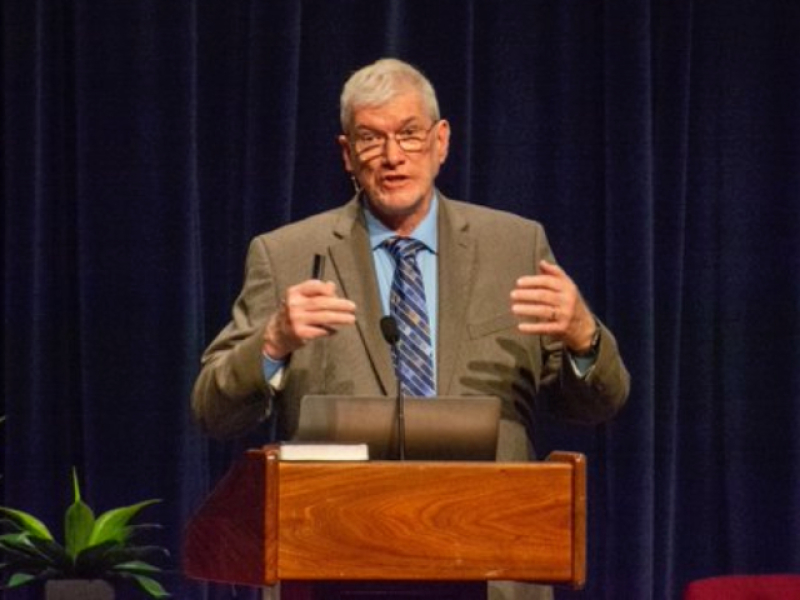
A Christian apologist has offered an explanation as to why the world is facing cultural chaos today, citing man's complete disregard for God's word.
Ken Ham, a noted Australian Christian fundamentalist, young Earth creationist and apologist, who founded Answers in Genesis (AiG) and the Young Earth creationist theme park called Ark Encounter in Kentucky, has provided a simple explanation for the "ascending cultural chaos and secularization" of the world today. The reason behind this, he believes, is "society's substitute of God's word for man's whims."
"What's happening in our culture today is really nothing new," the 70 year old Ham told CBN's "Faith vs Culture," as reported by Faithwire. "In fact, it's a battle that's been going on for 6,000 years."
According to Ham, the battle began in the Garden of Eden with the very first two people on Earth: Adam and Eve. He called the dispute "a foundational battle between God's Word and man's word."
Ham theorized that too many people don't recognize this at all. Instead, people focus on the many issues plaguing culture, such as racism to gender wars and abortion. He remarked, "They're looking at [these issues] and saying, 'Why do we have all these problems?'"
"People need to be thinking foundationally and understand they're all symptoms of the one problem, and the problem is: when you build your thinking on man's word, not God's Word," Ham explained.
Ham says that now, people are leaning on man's word, a dynamic that has reshaped culture. This, versus in the past, when the Judeo-Christian ethic was so commonplace that even non-believers shared in its moral teachings. The noted apologist remarked, "Generations ago, even non-Christians had more of a Christianized worldview."
Today, however, there is an assault on God's Word, which results in the erosion of its relevancy in current culture. Ham argued, "When you start to attack the Word of God ... look at what's happening in the public education system that's throwing God's Word out, the Bible out, prayer out, creation out and now their foundation is man's word, from a perspective of naturalism, which is atheism."
Ham explained that society today has evolved into having little to no respect for the Bible, because it's now "man who determines truth." This, he believes, has ushered in a new era where when it comes to morals, "anything goes."
"If you want to understand what's happening in our culture, you take generations and tell them the Bible is not the absolute authority, man determines right or wrong," Ham explained. "Therefore, what happens all becomes subjective, and therefore anything goes - except the absolutes of Christianity."
In December 2021, Pew Research found that Christians and the religiously unaffiliated differed on whether most things in society can be categorized into good or evil. The report said that "highly religious Americans are much more likely to see society in...terms" of good and evil, "while nonreligious people tend to see more ambiguity."
According to poll results, about half of the U.S. or 48% said that "most things in society can be clearly divided into good and evil," while 50% said that most things are "too complicated to be categorized this way." But the results also found that there is a huge difference in opinion based on the respondents' religious affiliation and how religious they are.
The poll showed that U.S. Christians are much more likely than religiously unaffiliated Americans to say that "most things in society can be clearly divided into good and evil, with 57% of Christians saying so versus 37% of those religiously unaffiliated Americans. Similarly, 64% of White evangelical Protestants and 57% of Black Protestants agreed.
Among those who said their religion is "nothing in particular," 43% said that most things in society can be clearly divided into good and evil. Only 22% of atheists and 29% of agnostics agreed. Researchers then came to the conclusion that, "Highly religious Americans - regardless of their religious affiliation - are more likely to see society in terms of good and evil."





















